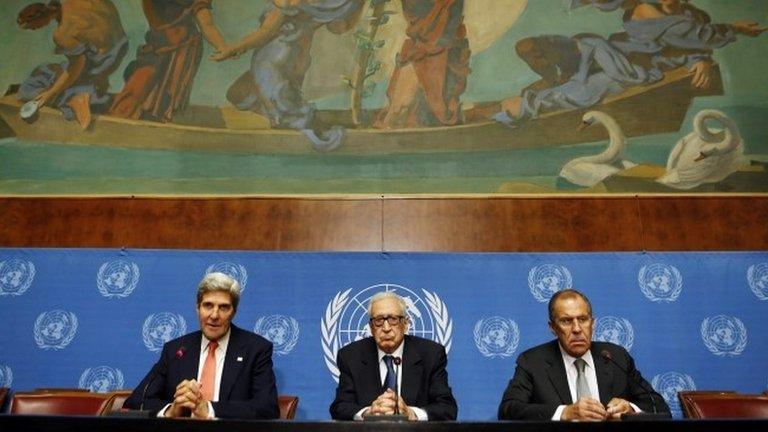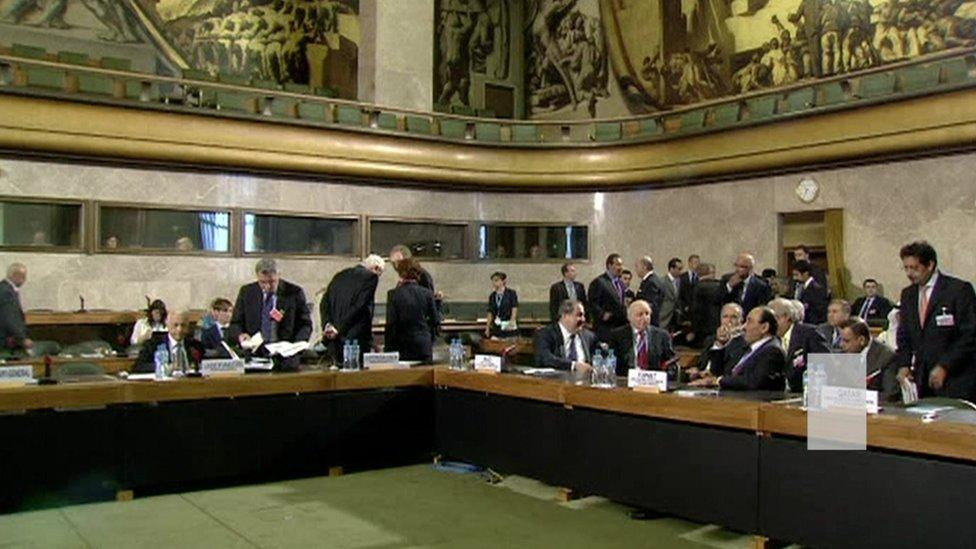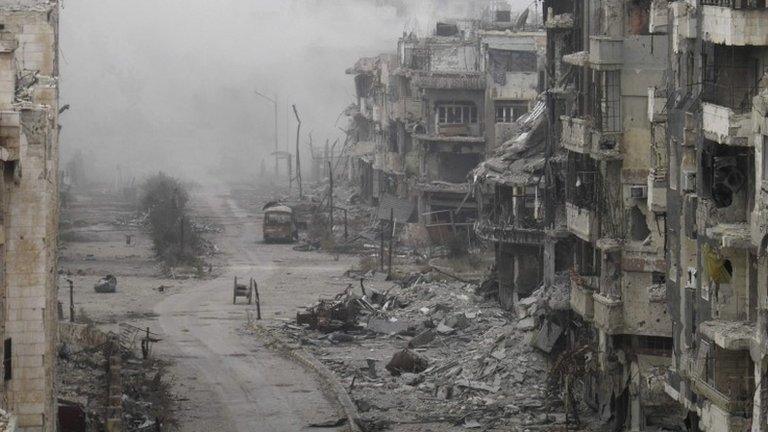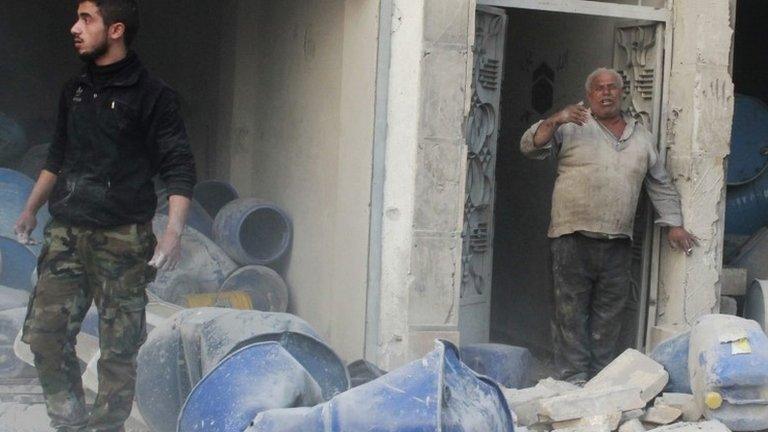Syria open to dialogue, but on its terms
- Published
Syrian Deputy FM, Faisal Mekdad: "If they believe we went to Geneva to give the keys of Damascus to this small group of people, then they are wrong."
While all eyes are on the crisis unfolding in Ukraine, a solution also still seems a long way away in the Syrian conflict.
When the recent peace talks collapsed in Geneva, the United States, France and Britain blamed the Syrian government, accusing it of blocking any chance of establishing a transitional government.
The second round of talks ended on 15 February with UN envoy Lakhdar Brahimi saying no progress had been made.
One key stumbling block was the actual agenda of the talks. Should discussions focus on the short term - ending the violence? Or the long term: putting a new government in place?
The opposition has made it clear that it wants President Bashar al-Assad to resign, but the Syrian authorities say there is no question of replacing him.
The government said it would attend another round of peace talks in Geneva once a new date was set.
The BBC's Lyse Doucet, in Damascus, spoke to Deputy Foreign Minister Faisal Mekdad about his views on the Geneva talks and the rebels' demands.
- Published22 January 2014

- Published21 January 2014

- Published27 January 2014

- Published20 December 2013
